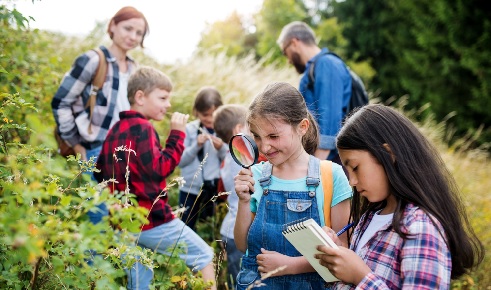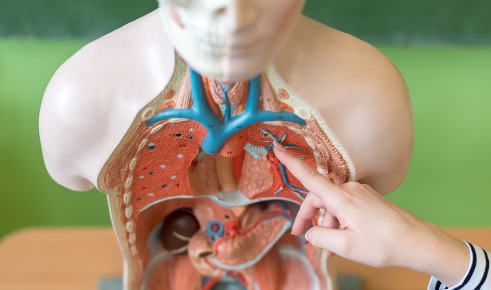A framework for the future

Jeremy Pritchard and Libby John explain the importance of the RSB’s new recommendations for school biology education in the UK
13th December 2021
With issues such as climate change, emerging diseases, antibiotic resistance, food security and conservation all urgently requiring solutions, biology is arguably the most important science of the 21st century. As we move into this difficult future, education will be key to informing and preparing people for the challenges ahead.
The biology curriculum in its broadest sense is everything that a young person experiences during their biology education. For the past seven years the RSB’s Curriculum Committee has been working on a framework and recommendations for biology curricula for ages five to 19 in the UK. Evolving 5-19 Biology was published in November and draws on the expertise of representatives across the education and bioscience landscape. This is not a call for curriculum reform or a ready-made curriculum. We hope policymakers, awarding organisations and governments in all four nations of the UK use this document as a guide and liaise with the RSB during future rounds of qualification reform and curriculum review.
Biology future in 3D
The framework recommends that curricula develop pupils’ understanding of biology in three ‘dimensions’: exploring practices of biology, core concepts of biology and applications of biology in the world. Within these pupils explore 23 key themes that seek understanding of, and answers to, the seven big questions of biology, such as ‘how do we study the biological world?’ and ‘why are organisms so different?’.
 Well-thought-out and relevant biology curricula are vital if future generations are to be scientifically literate and responsible
Well-thought-out and relevant biology curricula are vital if future generations are to be scientifically literate and responsibleThe framework also sets out eight recommendations to raise standards across the school biology curriculum. These include recommendations that curricula should provide pupils of all ages with ample opportunities to engage in practical and investigative work, including in the field, and to learn about plants and other organisms in addition to humans and other animals. Curricula should be clear, teachable and assessable, while allowing scope for innovation in delivery.
We also hope the framework can be used more widely by teachers and school leaders in developing the biology curriculum within their schools, and as a starting point for exciting future initiatives across a wide range of areas within the RSB and across society.
Fostering responsibility
Learning about biology enriches our view of the world. It enhances our capacity to appreciate nature and the interconnectedness of biological entities at every level of organisation. It empowers us with a fuller understanding of our own bodies, other organisms and the world around us, enabling us to take better care of them. It challenges us to re-evaluate our place and responsibilities within the biodiversity of the Earth, and helps us to understand and respond to crises that threaten it. Teaching biology helps to inspire the next generation to care, think, innovate and work together to protect and improve the world we live in.
The complexities of the biological world, and our knowledge of it, make this framework more important than at any other time. The school biology curriculum must aim to provide every young person with an experience of the explanatory power of the biological sciences, preparing them for further study, work and life as scientifically literate citizens in the 21st century.
Professor Jeremy Pritchard CSciTeach FRSB is chair of RSB’s Curriculum Committee
Professor Libby John is former chair of the RSB’s Curriculum Committee


